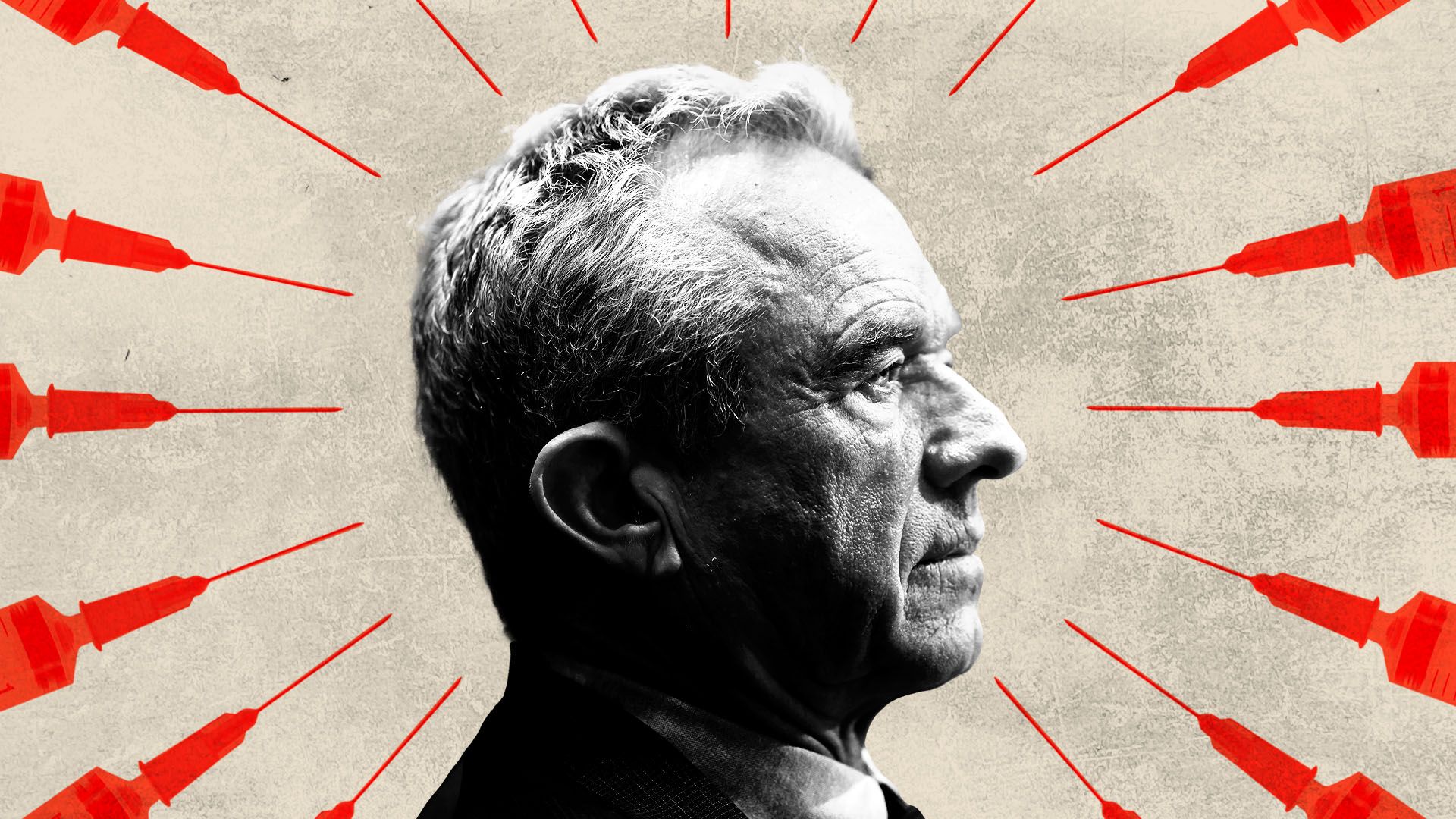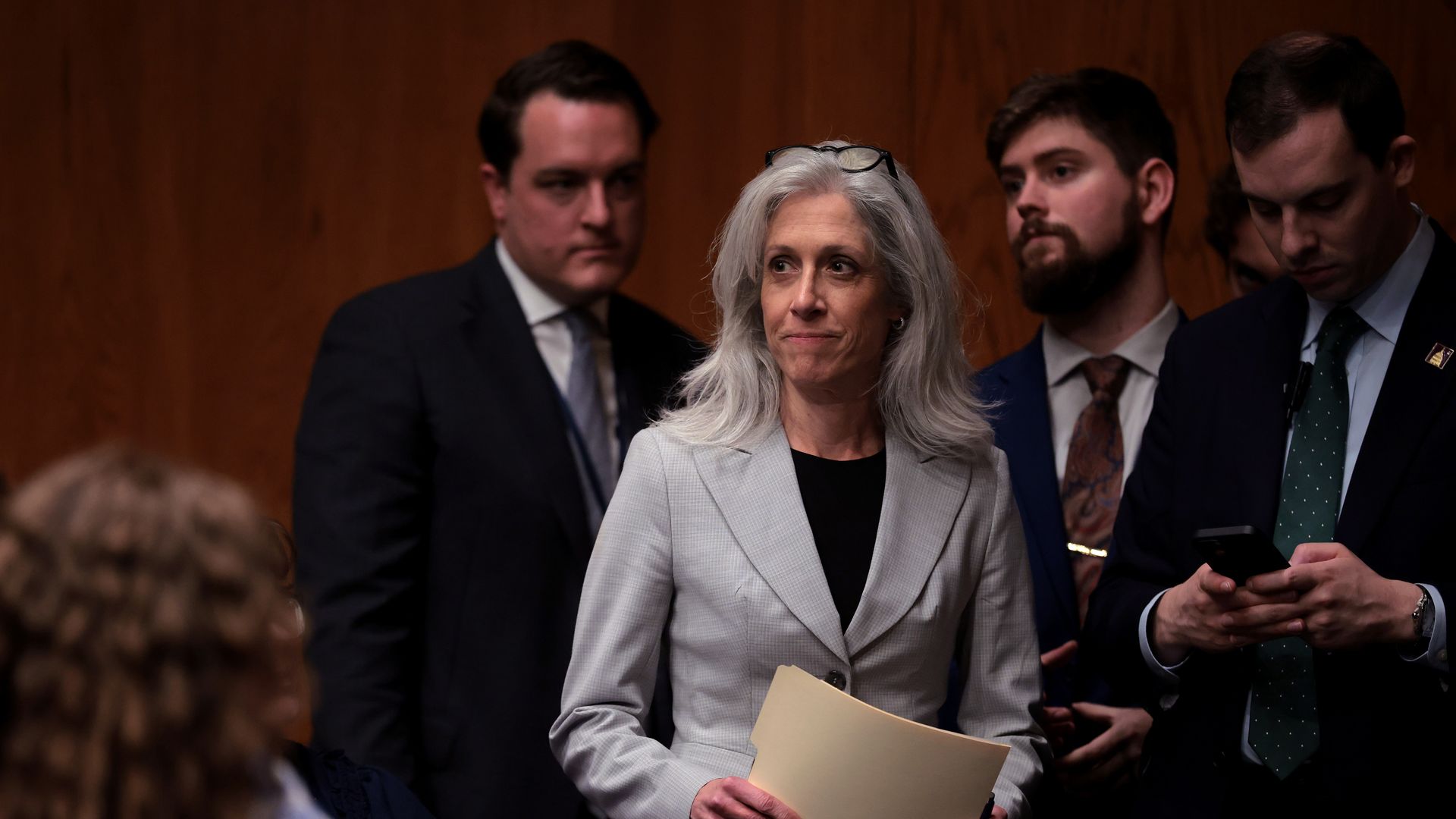|
||
| PRESENTED BY THE HEALTHCARE DISTRIBUTION ALLIANCE | ||
| Axios Vitals | ||
| By Tina Reed, Peter Sullivan and Maya Goldman · Sep 18, 2025 | ||
|
Good morning. Today's newsletter is 1,180 words or a 4.5-minute read. |
||
| 1 big thing: Crunch time for RFK Jr.'s vaccine panel | ||
| By Tina Reed | ||

|
||
|
Photo illustration: Sarah Grillo/Axios. Photo: Win McNamee/Getty Images |
||
|
Health Secretary Robert F. Kennedy Jr.'s push to reshape vaccine policy will hit a crescendo today, when his handpicked advisory panel is expected to consider limiting the availability of MMR, hepatitis B and COVID-19 shots. Why it matters: The Advisory Committee on Immunization Practices (ACIP) traditionally operates on scientific consensus and makes recommendations to the CDC director.
What they're saying: "ACIP has quite literally been the north star of America's approach to vaccination for decades," Jason Schwartz, a vaccine policy expert and associate professor at the Yale School of Public Health, told Axios.
Friction point: Yesterday, the Democratic governors of Oregon, Washington, California and Hawai'i released a set of immunization guidelines for their own states that, among other things, appear to eliminate the need for a prescription to get the 2025-2026 COVID-19 booster.
Inside the room: The agenda calls for discussions over two days on the hepatitis B vaccine, the MMRV vaccine and COVID boosters, as well as the safety review of COVID vaccines already delivered.
|
||
|
|
||
| 2. Ex-CDC chief details turmoil under RFK Jr. | ||
| By Peter Sullivan | ||

|
||
|
Monarez arrives to testify before the Senate health committee. Photo: Kevin Dietsch/Getty Images |
||
|
Former CDC director Susan Monarez got her turn yesterday to tell the Senate health committee about the events that led up to her firing in August after less than a month on the job.
Here's what stood out: Vaccine recommendations could be further weakened Monarez raised the alarm that major changes to the childhood vaccine schedule are imminent.
Cassidy pushes back on hepatitis B vaccine changes Health committee Chair Bill Cassidy (R-La.), a physician who specialized in gastroenterology and liver diseases, spoke about his experience treating patients with hepatitis and warned against a potential weakening of the recommendation for newborns to receive the hepatitis B vaccine.
|
||
|
|
||
| 3. CDC stops telework disability accommodations | ||
| By Maya Goldman and Emily Peck | ||

|
||
|
Photo illustration: Shoshana Gordon/Axios. Photo: James Gathany/CDC |
||
|
The CDC is no longer allowing remote work for employees with disabilities or those with temporary health issues, including those who've requested to work from home since the Aug. 8 attack on the agency's Atlanta headquarters. Why it matters: The legality of such a move is questionable, and it may violate a law that requires the government to offer reasonable accommodations to those with disabilities.
Zoom in: An agency-wide notice sent yesterday morning and viewed by Axios says that HHS has updated its policy to no longer include teleworking or long-term teleworking as a reasonable accommodation.
It's not yet clear whether the policy is permanent or how it's being enforced. Complicating matters, the officials who oversee reasonable accommodation requests were fired in April as part of a sweeping reduction in force, employees say. Between the lines: Many CDC workers feel unsafe coming into work since last month's shooting, which they say was stoked in part by Kennedy's anti-vaccine rhetoric.
|
||
|
|
||
|
A MESSAGE FROM THE HEALTHCARE DISTRIBUTION ALLIANCE |
||
| See how millions of medicines move through the supply chain | ||
|
|
||
|
Distributors work around the clock to deliver medicines to providers, pharmacies and other sites of care. Here’s how: Dedicated people across the industry are constantly adapting and leveraging new innovations to meet the needs of patients and ensure a safe and efficient supply chain. |
||
| 4. Younger workers underuse mental health benefits | ||

|
||
|
Illustration: Aïda Amer/Axios |
||
|
About 14% of the insured population has been diagnosed with anxiety by a health care professional, driving up health care spending and limiting productivity, according to a new analysis of claims data by Cigna. The big picture: Anxiety is particularly pronounced among Gen Z and millennials — groups that are rapidly becoming the majority of the workforce.
By the numbers: People diagnosed with anxiety account for $13.9 billion in medical, behavioral and pharmacy expenses.
Between the lines: While workers with anxiety are just as likely to receive merit increases or promotions and often have a strong willingness to take on added work, they experience lower self-confidence than their peers. |
||
|
|
||
| 5. Catch up quick | ||

